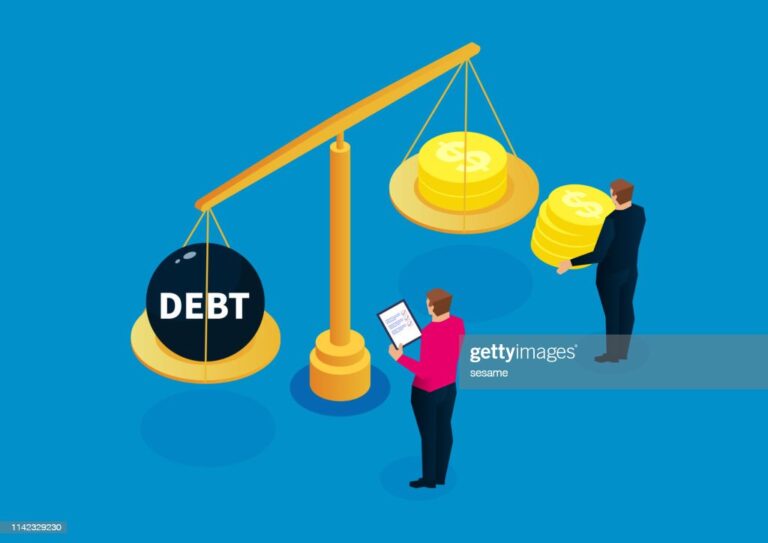Table of Contents
There has never been a more crucial time to reevaluate your present relationship with debt, with 77% of Americans feeling apprehensive about their financial condition and nearly half of Americans increasing their debt.
Debt is stressful as it prevents you from being financially secure and free. In fact, 42% of American adults say that worrying about money and dealing with debt has harmed their mental health and contributed to a variety of issues like anxiety, stress, and depression. There has never been a better moment to get a grasp on your debt with the total household debt in the United States expected to reach $16 trillion in the first half of 2022 and continue to rise.
1. Know Your Debt.
The average American owed $155,000 at the beginning of 2022. Mortgages accounted for the majority of this debt, but many Americans also had credit card debt, college debt, auto debt, home equity debt, and other types of debt like personal loans.
Knowing where you are in your debt reduction approach will help you decide where to go from there. Make a spreadsheet of all your unpaid bills and note:
- How much debt is outstanding, by lender
- Current interest rates
- The interest rate type (fixed or variable)
- Payment routine
- Due Dates for Payment
- Minimum amounts due
- Any prepayment charges or Fees
Do not leave any kind of debt out, including any buy now, pay later kind of offer (this is still debt).
Sort your debt into Good Debt and Bad Debt categories as you create your list :
Bad debt is consumer debt on high-interest financial instruments like a credit card or unsecured personal loan that was used to Fund things like vacations or large material goods.
Good debt is at a manageable interest rate and bonded to an asset like a property or a business.
2. Understand the Physology of Debt.
Debt management involves more than simply math; it also involves your attitude toward spending and conserving.
You must adopt the proper attitude and learn to cope with the frequent negative feelings that come along with debt, such as guilt, anxiety, and denial, if you want to get out of debt.
Everyone has various financial circumstances and reasons for accruing debt, but the sooner you can accept your current predicament and put an end to negative emotions or the belief that you’ll never be debt-free, the sooner you may begin the process of reducing your debt.
3. Evaluate Your Spending
Get a clear picture of where your money has gone during the time you built your debt because debt is a product of your spending.
This is a crucial step since debt can suddenly sneak up on you and hit you like a wall. Understanding your spending habits also forms the basis for determining how much of your money you may set aside for debt repayment.
As you conduct this analysis, be on the lookout for:
- Regularly ordering takeout or dining out
- Inappropriate travel expenses
- Excessive Alcohol consumption
- Unused subscription services
- Penalties for late payments on debt
- Paying for a luxury vehicle

4. Make More Money
Unfortunately, life has a particular price tag and seems to be getting more expensive by the day.
While most financial experts would advise you to concentrate mostly on the saving side of the equation when it comes to debt reduction, one of the best methods to pay off debt more quickly is to increase your income.
If you can, consider selling items you no longer need or beginning a side business based on a hobby. You will have to pay more toward debt the more money you earn.
5. Seek Professional Assistance
It can be beneficial to seek the aid of a qualified debt counsellor when you’re having debt problems. Debt counsellors impart knowledge on budgeting, credit, and debt management so that clients can make wise financial decisions in the future.
Typically non-profit organisations, debt counselling services provide free or inexpensive help. Depending on the type of assistance needed, first counselling sessions may be free, but enrollment fees or ongoing monthly fees may apply after that. The majority of firms produce free debt education materials, but some services, like debt management and repayment plans, are fee-based.
Individual counselling sessions won’t have an effect on your credit score, but what you do thereafter might.

Putting it All Together
Debt repayment is not a one-size-fits-all activity, but it is achievable with the correct attitude, goals, perseverance, and consistency.
Knowing how you got into debt and what kind of debt you have will help you create a repayment plan that is effective for you.
Just keep in mind the goal and the reason you began your debt-reduction quest. Future you will be grateful.



